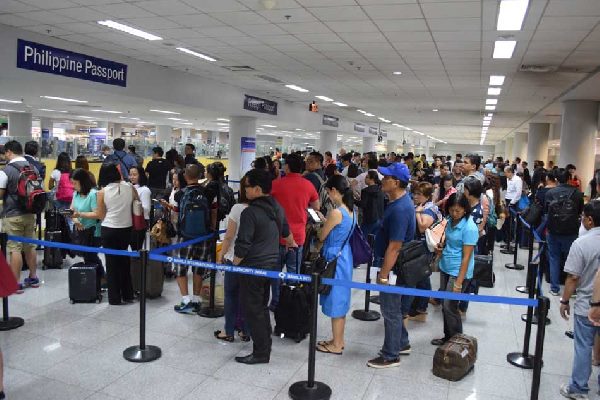05/12/2023
05/12/2023

MANILA, Dec 5: In a bid to address the plight of individuals offloaded from flights in 2022 due to prolonged questioning by immigration officers, the Philippine Senate is considering a provision in the 2024 General Appropriations Act (GAA) that could offer reimbursement for affected passengers.
According to records from the Bureau of Immigration (BI), a staggering 32,404 Filipino passengers were denied boarding in 2022, with 472 identified as victims of human trafficking or illegal recruitment. In response to this issue, Senator Francis Escudero, a key proponent of the initiative, has proposed a special provision in the 2024 budget to compensate those who were offloaded.
The proposed provision, currently under consideration in the GAA, aims to allocate funds for the reimbursement of affected passengers. Senator Escudero, during the budget deliberations, asserted that the funds for reimbursement would be drawn from the Bureau of Immigration's collections, specifically 10 percent of the annual earnings, which are routinely returned to the National Treasury.
Despite concerns about potential impacts on immigration officers' salaries and expenses, Senator Escudero assured that the proposed reimbursement would not affect these aspects. Additionally, he clarified that the reimbursement provision would be retroactive, allowing individuals offloaded in the past to claim compensation.
The process of offloading, which prevents passengers from leaving the country for various reasons, has sparked interest and concern among Filipinos, particularly those who have experienced financial losses, as refunds for offloaded passengers are typically challenging to obtain under existing airline rules.
To address the issue, the proposed reimbursement provision is now being scrutinized by the Bicameral Conference Committee, a joint body comprising representatives from both the Philippine Senate and the House of Representatives. Senator Escudero expressed confidence that the bicam committee would accept the provision and that President Ferdinand R. Marcos Jr. would not veto it, considering the modest allocated amount of Php200 million within the government's 5.7-trillion-peso ($103.07-billion) budget for 2024.
In related news, concerns have been raised among Filipinos about the updated guidelines released by the Inter-Agency Council Against Trafficking (IACAT) in August 2023. These guidelines, effective since September 3, 2023, aim to enhance citizen protection against human trafficking and illegal recruitment for Filipinos traveling abroad. Despite public unease, officials clarified that the revised protocols do not impose additional burdens on departing travelers, emphasizing the need for clear departure protocols to deter potential traffickers.
The basic travel requirements, applicable to over 95% of travelers, include a passport valid for at least six months from departure, a boarding pass, an appropriate visa if required, and a confirmed return or roundtrip ticket when necessary. Additional requirements may apply to first-time travelers and those seeking employment abroad, with officials urging travelers to prepare supporting documents, such as proof of financial capacity or a certificate of employment, based on their specific circumstances.


